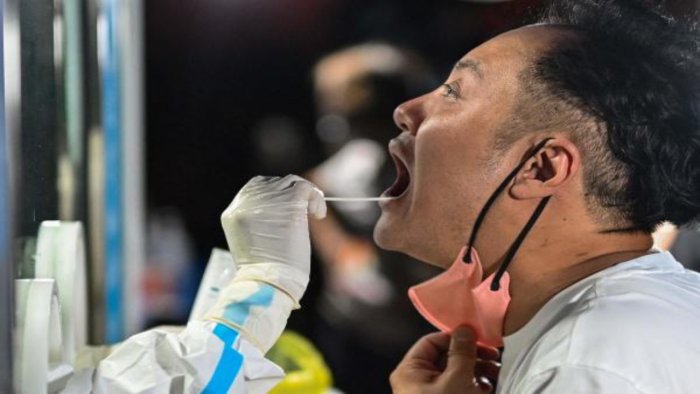The SARS-COV-2 virus, which causes Covid-19, can survive with meat and fish products in the refrigerator or freezer for up to 30 days, a study shows.Research, which was recently published in the Journal of Applied and Environmental Microbiology, was carried out using chicken viruses, beef, pork, and salmon, and substitutes with nails similar to those in SARS-COV-2.Researchers store meat and fish products in both coolers (4 degrees Celsius) and freezer temperatures (minus 20 degrees C).
“Even though you might not store meat in the refrigerator for 30 days, you might store it in the freezer for that long,” said the first writer Emily S. Bailey, assistant professor at Campbell University in the US.”We even found that the virus can be cultured after (frozen for) a long time, Bailey said in a statement.
The researchers conducted research after learning that the Covid-19 outbreak occurred in Southeast Asia before the transmission of the community.Reports from these communities “suggest that meat products that are packaged, produced in areas where SARS-COV-2 circulates, can be a source of viruses,” Bailey said.
“Our goal is to investigate whether a similar virus can survive in this environment,” he said.This research is important because SARS-COV-2 can imitate in the intestine, as well as in the respiratory tract, said Bailey.in this study, researchers used one RNA virus with lipid envelope, and two animal coronavirus, murine hepatitis virus, and gastroenteritis virus that could be transmitted as a substitute.
The three viruses have previously been used as a substitute for SARS-COV-2, generally with a greater reduction in the amount of them observed in cooling than at frozen temperatures.Reduction of numbers also varies according to the food items used.”Sustainable efforts are needed to prevent food contamination and food processing surfaces, workers’ hands, and food processing equipment such as knives,” the researchers said.
Lack of, or inadequate, disinfection of this food before packaging needs to be handled, added them.


